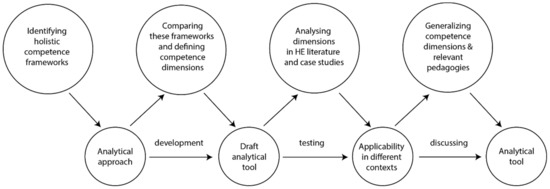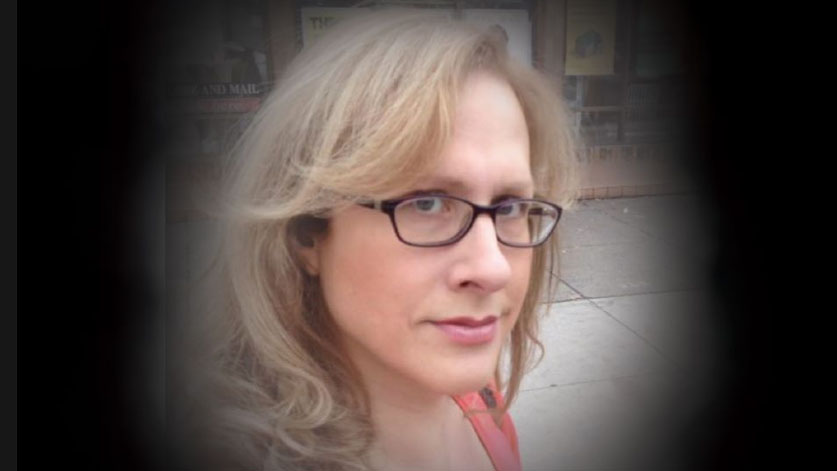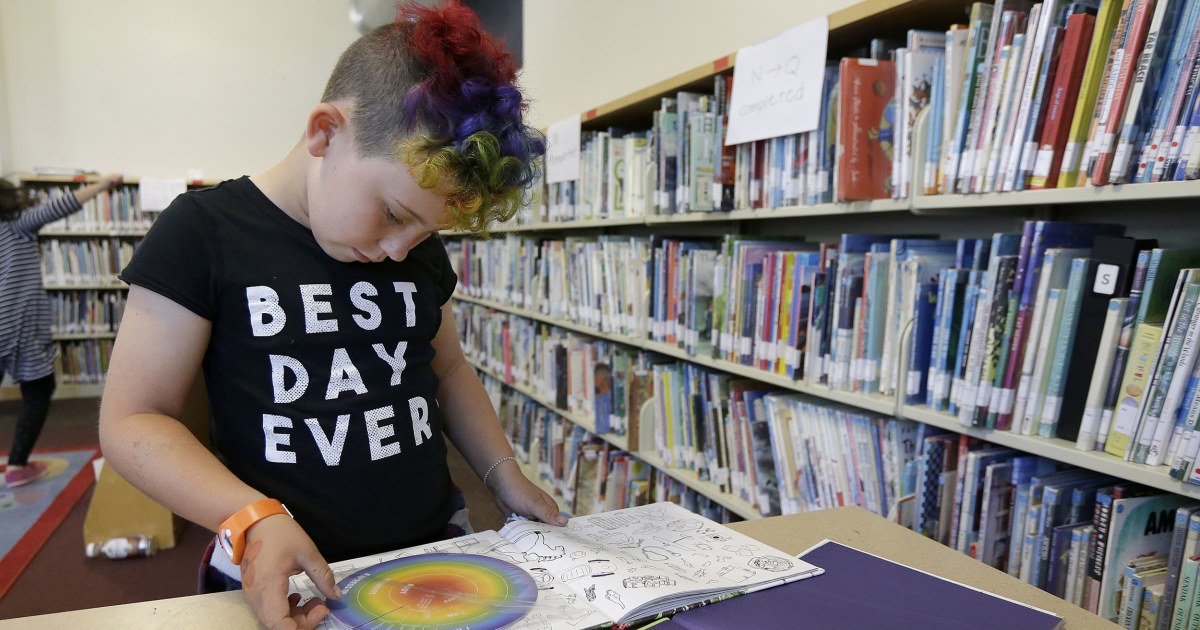I found this article on Sott most disturbing:

 www.sott.net
www.sott.net
That a teacher would have the audacity to tell very young children that "girls are not real, and boys are not real," along with showing that perverse He, She, and They?!? video that also asserted "some people aren't boys or girls" and that those who do not feel like a "she" or a "he" might not have a gender - I'm really at a loss for words to adequately express my extreme consternation that something like this is actually happening for real!!! Seriously, how far is this absurd gender fluid agenda going to be allowed to go by the majority of people who still have at least some grasp on reality? Which brings me to my next point - community values.
Seriously, how far is this absurd gender fluid agenda going to be allowed to go by the majority of people who still have at least some grasp on reality? Which brings me to my next point - community values.
It seems like there was quite a lot of brouhaha surrounding community values sometime in the not too distant past, but my attempt to locate what I thought I was looking for came up empty. I did find the following which I think has pertinent parallels to whether local schools should reflect/connect to local community values:

Parents sue school board for teaching their daughter 'girls are not real'
A Canadian couple have filed a human rights complaint against an Ontario school board for telling their six-year-old daughter during a lesson on gender identity that "there's no such thing as boys and girls." Pamela and Jason Buffone have filed...
That a teacher would have the audacity to tell very young children that "girls are not real, and boys are not real," along with showing that perverse He, She, and They?!? video that also asserted "some people aren't boys or girls" and that those who do not feel like a "she" or a "he" might not have a gender - I'm really at a loss for words to adequately express my extreme consternation that something like this is actually happening for real!!!
 Seriously, how far is this absurd gender fluid agenda going to be allowed to go by the majority of people who still have at least some grasp on reality? Which brings me to my next point - community values.
Seriously, how far is this absurd gender fluid agenda going to be allowed to go by the majority of people who still have at least some grasp on reality? Which brings me to my next point - community values.It seems like there was quite a lot of brouhaha surrounding community values sometime in the not too distant past, but my attempt to locate what I thought I was looking for came up empty. I did find the following which I think has pertinent parallels to whether local schools should reflect/connect to local community values:
A bit more relating to this:“Do core values really matter?” Before I could pause to think I abruptly replied, “Yes, absolutely.” I had just finished giving a speech in Texas that touched on the topic of corporate values and one of the attendees had pulled me aside afterwards. Though sounding confident in the moment, that evening I began to reflect more deeply on that simple yet complex question.
For starters, it’s a reasonable question to ask, and it’s one that I’ve come back to often in my work with organizations of all sizes. I’ve since added to it, reflecting on questions such as these:
The answer to that last question may be relative. For example, a particular values statement may be true for engineers but have no meaning for salespeople. Or it could fit well in the office, yet seem irrelevant in the field. That’s why creating a values statement is so difficult. It’s challenging to reflect a truth that is shared throughout the organization, particularly one that crosses every classic organizing force used for any group of people in history, from geography to socioeconomics, religious ideology, race, gender, education, favorite sports team, and more.
- How can we know if a company’s values are a reflection of reality, or a contrived attempt to reinforce a façade?
- Should company leaders be the sole source of a values statement? If not, who else?
- Do companies have “unique” values, or do values overlap from one business to another? And if they do, does that matter?
- If a company dresses its values in fresh, hip language spoken with bravado, have they actually created something different than the staid traditionalists?
- What is the role of core values in an organization? How must companies adapt to the present landscape? And is a company’s values statement actually true?
But that’s also why it’s so important to do it well, because core values are not a corporate declaration, but rather a community standard. Leaders who fail to understand this create “core values” that provoke reactions ranging from open skepticism to inward indifference – far short of a culture of momentum, purpose, and professional kinship.
In any community, values are extracted, lived, and felt – not scripted. They come from what is shared and often unwritten; they create identity and belonging; and, together, they act as a compass. While they may also be aspirational, they don’t start from a list of sanitized terms or hipster buzzwords.
[...]
Values create a community where we agree about what matters
The push to create values statements grows out of the radical shift in how and with whom we interact each day. Until the 20th Century and the popularization of the automobile, the community of people that we lived with was the same community that we worked with. Therefore, company culture didn’t need to be defined because there was little disconnect between the values baked into the local community and those of the organization.
The lesson from those times is that community and culture are built around what we have in common, and it’s what we have in common that drives our core values.

Rethinking the Value of Core Values
Core values are extracted, lived, and felt – not scripted. Leaders who fail to understand this create “core values” that provoke reactions ranging from open skepticism to inward indifference. Rediscovering your truth - and your shared stories - will help you create core values that last.www.forbes.com
Major Disclaimer: The above was quite the slog through a whole bunch of educationalese (similiar to legalese): "In education, just like many other professions, we speak in educationalese where we use acronyms to explain how we are educating their child." Often, it comes across as word salad to the uninitiated. More importantly, this particular excerpt was in reference to the following: "These concerns and ideas have led to the introduction of the people-centred concept, The Lived Experience of Climate Change." In other words, the concept is coming from the educational platform into the community as to values instead of vice versa - at least that's the idea I thought was being expressed - which amounts to 'how to brainwash students without really trying'. This article was totally reflecting the current propagandist mindset as it was catorigized under Sustainability 2019, i.e. the Agenda 21/2030 key identifier.Competences to Address SDGs in Higher Education—A Reflection on the Equilibrium between Systemic and Personal Approaches to Achieve Transformative Action
[Excerpt]
Lived Experience is described as the knowledge gained and obtained by people over time through their engagement with each other and the knowledge they generate through their actions. The concept connects experiential learning to action and recognises the social conditions of knowledge production and engagement. This lived experience is influenced by a diverse set of more enduring factors, such as gender, one's social class, one's education, local and regional values.

Competences to Address SDGs in Higher Education—A Reflection on the Equilibrium between Systemic and Personal Approaches to Achieve Transformative Action
Competence-oriented teaching that leads to the sustainable transformation of both the individual and society requires a holistic learning process that addresses the cognitive, socio-emotional and behavioural domains of learning in a balanced way. This article questions whether a personal...www.mdpi.com
Final report of culture education - Ministry of Human Resource Development
Government of India 2005
The development of the curriculum should be taken up with the involvement of local resources: human and otherwise. The curriculum should have sufficient flexibility to accommodate the hopes, aspirations, needs and culture of the local community.
How can community play an important role in providing suitable education and helping in the educational process?
Community is an informal and active agency of education. It is defined as a group of families settled together in a particular area with more or less common practices, ideals, ideas, values and culture. It is a dynamic form of organization for the betterment and progress of its individuals. It provides general and liberal from of education by socializing its members. There is also a better coordination between school and community and home and community.
Read more:
How can community play an important role in providing suitable education and helping in the educational process?
Community is an informal and active agency of education. It is defined as a group of families settled together in a particular area with more or less common practices, ideals, ideas, values and culture.www.preservearticles.com
So, not an alien concept to link the school curriculum to local community values and culture. That any educational system thinks it is perfectly OK to push this ridiculously insane notion that a human might not even have a gender or that girls and boys aren't even real onto highly impressionable and emotionally vulnerable children is beyond unconscionable!Democracy and Education; Schools and Communities Research Project
[Excerpt]
What would a school that conceives of itself as a democratizing force in its students’ education look like? We have attempted to outline some of the kinds of practices that would be enacted, particularly those that make explicit links between forms of community engagement and the manifest curriculum. There are other factors pertaining to the latent curriculum to consider that have a tremendous bearing on student learning. These factors include the extent to which students have a voice in school governance, the extent to which teachers collaborate and support each other, the kind of leadership modeled by school leaders, the level of thoughtfulness that the school board exerts and models for the rest of the community. Other factors include the existence of a common understanding among teachers, school administrators, parents, community members and students that the school is, first and foremost, a crucial part of the local community, and that as such, bears a responsibility for serving not only its students, but the entire community. Such service may come in the form of offering the school as a public place, where the entire community can gather for special events, such as in our example from Currier Memorial. This service may also entail supporting teachers and students in conducting projects that have a lasting and meaningful impact on the community, such as Cabot’s renovation project or Guilford’s community newspaper. This service may also come in the form of preparing students to be active citizens in their local communities and developing a sense of appreciation for the local culture.
The Democracy and Education; Schools and Communities Research Project, sponsored by the John Dewey Project on Progressive Education, is comprised of a series of case studies of schools that have attempted or are in the process of attempting to connect the school’s curriculum to the life of the local community.
Does anyone doubt that these questionable educators are unaware of the above fact?!!The years between 6 and 14—middle childhood and early adolescence—are a time of important developmental advances that establish children's sense of identity.







 ), i fell on the title of an article, "
), i fell on the title of an article, "

